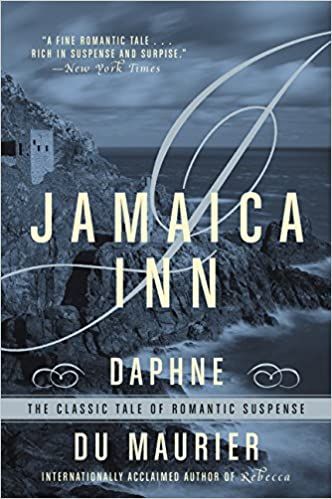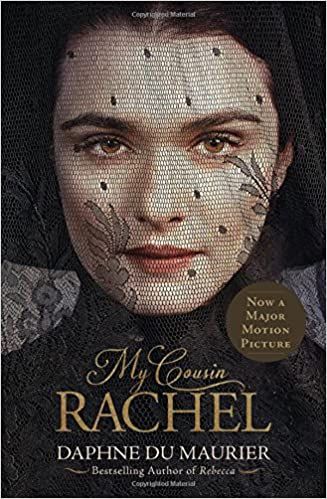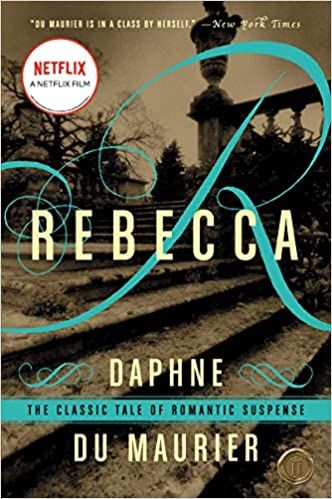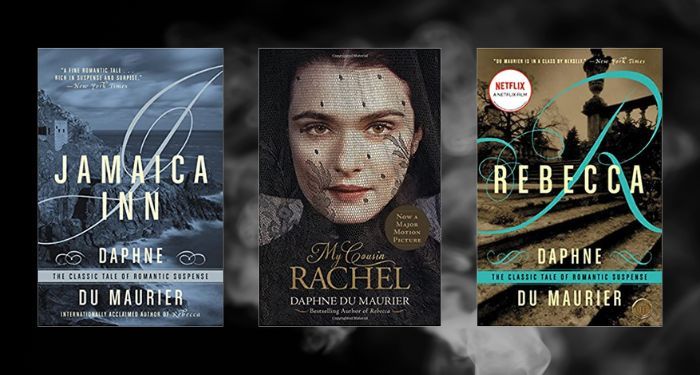Daphne Du Maurier’s career was long and storied; her life was equally so. Her books were huge bestsellers when they were published, and many live on in edition after edition. Du Maurier was a novelist, a poet, a playwright, an essayist, a literary critic, a nonfiction writer, and a biographer. In short, she was a Writer with a capital “W.”
To begin, a short biographical sketch: Daphne Du Maurier was born in 1907 in London, England, into a literary and dramatic family. Her father was a well-known actor-manager, and her mother was an actress. Her maternal grandfather was a Punch cartoonist and is the author of Trilby (1894). Her cousins were the children that J.M. Barrie patterned the Darling children after in Peter Pan, and her father was friends with one Sir Alfred Hitchcock, who directed three of her works (Jamaica Inn, Rebecca, and The Birds).
If Du Maurier were writing today, she would fall squarely in the “popular fiction” category. Her work has a quality of being easy to relish, fun to read, and also sticking with the reader. She was a master at leaving just enough strings still dangling at the end of a novel that the reader ends up batting like a kitten at them far after the reading is done.
She is at the top of my “favorite authors whose work I need to explore more deeply” list, so I’ve put together a primer for getting started with Du Maurier that we can all work through together.

Jamaica Inn — 1936
The first thing you should know about Jamaica Inn is that it does not, in fact, take place in Jamaica. The second thing you should know is that Jamaica Inn is a real place — still operating as a pub — and the book is based in part on Du Maurier’s stay there in 1930, although it is a period piece set in 1815. Also, Tori Amos wrote a song about it.
The plot centers around Mary Yellan, who moves to the inn to live with her aunt and uncle after the death of her mother. As she integrates with the local community, she learns things about both the inn itself and her relatives that are unsettling. It is a wild tale of murder, mayhem, and Druids (!!), and it contains no romantic side plot, which is unusual in popular literature. There is, however, some horse thievery.
Jamaica Inn is the kind of historical fiction that has titillated readers for decades, romanticizing the past while also making it somewhere we would definitely not want to live.

My Cousin Rachel — 1951
My Cousin Rachel is told through the eyes of Phillip, an orphan who has been cared for since the age of 3 by his cousin Ambrose, who owns a large estate in Cornwall. Ambrose’s health requires him to spend winters in a warmer climate, and in his third winter in Italy, he begins to write to Phillip of Rachel, the Contessa Sangaletti.
Ambrose’s letters get stranger as his health declines. By the time Phillip gets to him in Italy, he has died of a brain tumor and Rachel has left.
Two weeks later she arrives in Plymouth, and Phillip kindly invites her to stay with him. That’s when the REAL story starts.

Rebecca — 1938
If only one of Du Maurier’s books were to survive in perpetuity, it would be Rebecca, haunting readers and stymying filmmakers forever. The titular character is dead, and we meet her widower in Monte Carlo through the eyes of the unnamed narrator — a young and impressionable woman who becomes the second Mrs. de Winter. But the specter of the first Mrs. de Winter — Rebecca — looms large at the de Winter estate of Manderley, not in the least because the estate housekeeper, Mrs. Danvers, had a fixation and has kept her presence in the house alive.
Max de Winter, on the other hand, does not want to talk about Rebecca at all, and it is the central tension of the plot while the second Mrs. de Winter (who takes her tea in bags) tries desperately to fill her predecessor’s shoes — with Mrs. Danvers’s help, of course.
I will close with some adaptation recommendations, since Du Maurier’s work has been adapted regularly ever since she started publishing. For Jamaica Inn, the 1939 film is the only one available. Du Maurier didn’t like it, and it is significantly different from the book, so perhaps avoid that. Instead, check out the 2014 BBC miniseries.
I’ve seen the 2017 adaptation of My Cousin Rachel, and it’s delightfully atmospheric; I think Du Maurier might have liked it, despite being notoriously unimpressed with adaptations of her work in general. She called the 1952 version “quite desperate” and thought Olivia de Havilland was miscast.
The only film adaptation of Rebecca worth seeing is the 1939 version with Lawrence Olivier and Joan Fontaine. My entire bookish group chat watched the 2020 Netflix version and we universally hated it for being untrue to the spirit of the book (both referring to the entire book and to Rebecca herself), despite a stellar performance by Kristin Scott Thomas. The actor who plays Max de Winter was miscast, and also turned out to be…not great…so just pretend it doesn’t exist at all. To be fair, Rebecca suffers in film because the entire novel is first person singular and we never see the (extremely unreliable) narrator. It works in text, but less so on screen. Still, the Hitchcock version is very good, especially on a dark night with lots of popcorn.
